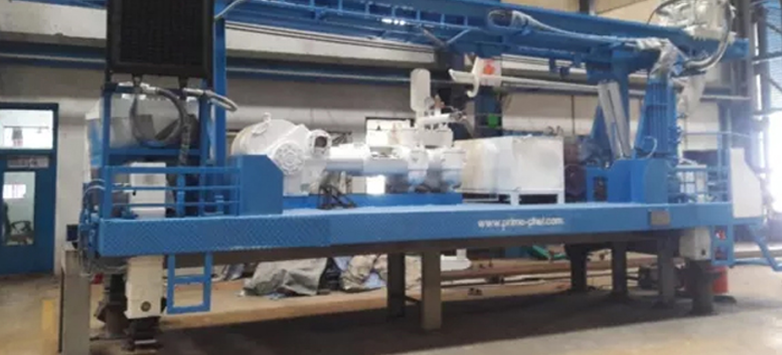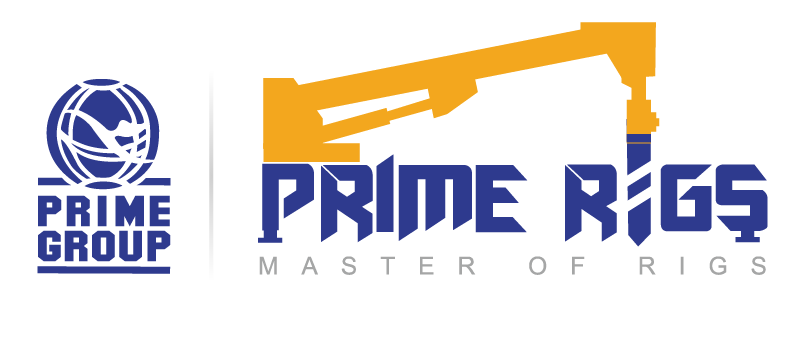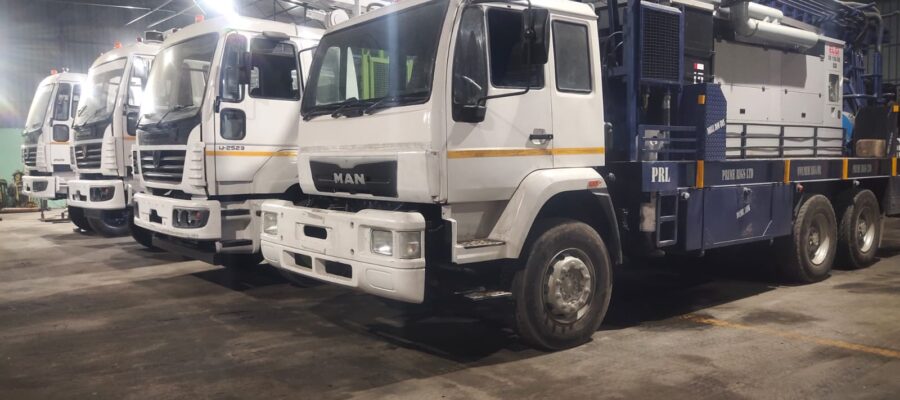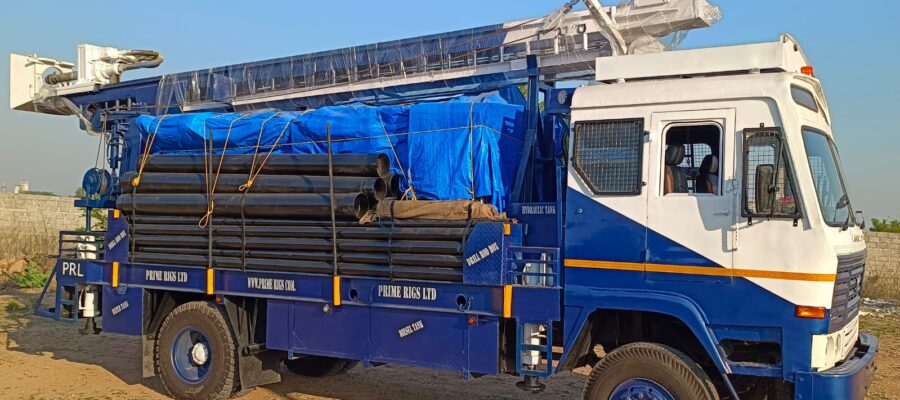
A well-drilling machine is a device used to drill or dig a hole into the ground to access underground water or oil reserves. It typically consists of a drilling rig, a drill stem, a drill bit, and a mechanism for turning the drill stem and rotating the drill bit. The well drilling machine rig may be mounted on a truck or trailer for mobility, or it may be a stationary structure. The drilling process involves rotating the drill bit and applying downward pressure to penetrate the ground while also removing cuttings and circulating fluid to the surface. The depth and diameter of the well depend on the intended use and geological conditions at the site. Thus, below are some tips for selecting a well-drilling machine.
- Purpose: Determine the type of well you need and choose a drill that is suited for that purpose.
- Capacity: Consider the capacity of the drill in terms of drilling depth, diameter, and fluid volume.
- Power source: Choose a drill that is powered by a reliable source of energy, such as an engine, generator, or electric motor.
- Portability: If mobility is important, choose a drill that can be easily transported and set up on site.
- Drill bit: Choose a drill bit that is appropriate for the geology at your drilling site.
- Maintenance: Choose a drill that is easy to maintain and has readily available parts.
- Brand reputation: Consider the reputation of the manufacturer and their track record for producing high-quality drills.
- Price: Consider the cost of the drill and make sure it is within your budget, but also remember that the cheapest option may not be the best value in the long run.
- Customer support: Choose a manufacturer with good customer support in case you need assistance with maintenance or operation.
- Safety features: Choose a drill with appropriate safety features, such as emergency stop buttons, guards for moving parts, and fire suppression systems.
- Operator training: Make sure that you or the operator of the drill has the proper training and certification to use the equipment safely and effectively.
- Warranty: Consider the warranty offered by the manufacturer and make sure it covers the critical components of the drill.
- Environmental impact: Choose a drill that minimizes the environmental impact, such as using environmentally friendly drilling fluids.
- Future needs: Consider if your drilling needs may change in the future and choose a drill that can be easily modified or upgraded to meet those needs.
- Local regulations: Make sure that the drill you choose complies with all local and national regulations and standards for drilling.
- Test drilling: Consider conducting a test drilling before making a final decision to confirm the drill’s capabilities and performance.
In conclusion, a water drilling machine for sale is a critical tool for accessing underground water or oil reserves. Selecting a high-quality drill that is suited to your needs and meets your budget is important for the success of your drilling project. By considering factors such as purpose, capacity, power source, portability, drill bit, maintenance, brand reputation, price, customer support, safety features, operator training, warranty, environmental impact, future needs, and local regulations, you can find the right drill to meet your needs. Always follow proper safety procedures when operating a drill and ensure that you or the operator has the necessary training and certification.
Recent Post
- Frequent Used: Heavy Construction Equipment and Instruments
- What Type of Water Drilling Should You Choose?
- How To Choose The Perfect Drilling Rig To Buy?
- Tips For Selecting the Right Drilling Rig According to Your Need
- Water Well Drilling: Numerous Advantages
- How To Find Affordable And Reliable Water Well Drilling Rigs For Sale?
- Everything You Need to Know About Water Construction Rigs
- Water Drilling Rigs: Know The Different Types
- Refurbished Borehole Drilling Machine: Is It Worth The Purchase?
- Safety for the Construction Industry: Why Does it Matter?
- Milling Or Drilling: Which Is The Right Process To Choose?
- Choosing A Construction Truck Rigs Supplier Keeping Perfection In Mind
- Factors That Can Help You Select The Best Water Well Drilling Rig
- What Makes Drilling Rigs Different From Milling Rigs?
- Water Well Drilling Rig: All You Need to Know About It
- Do’s and Don’ts of Choosing the Right Rigs
- Underground Drilling Rigs: Features That Make Them Unique And Most Recommended
- What are construction drilling rigs? Why do companies need them?
- How do drilling companies help you with core drilling exploration?
- Key Features and Benefits of Drilling Machines in the Construction Industry
- Exploring the Advantages of Portable Borewell Drilling Technology
- How to Choose the Right Drilling Rig for Your Needs
- Reasons to Invest in Absolute Guide for Rotary Drilling
- Selecting the Ideal Drilling Rig: Ensuring Safety, Efficiency and Cost-Effectiveness





